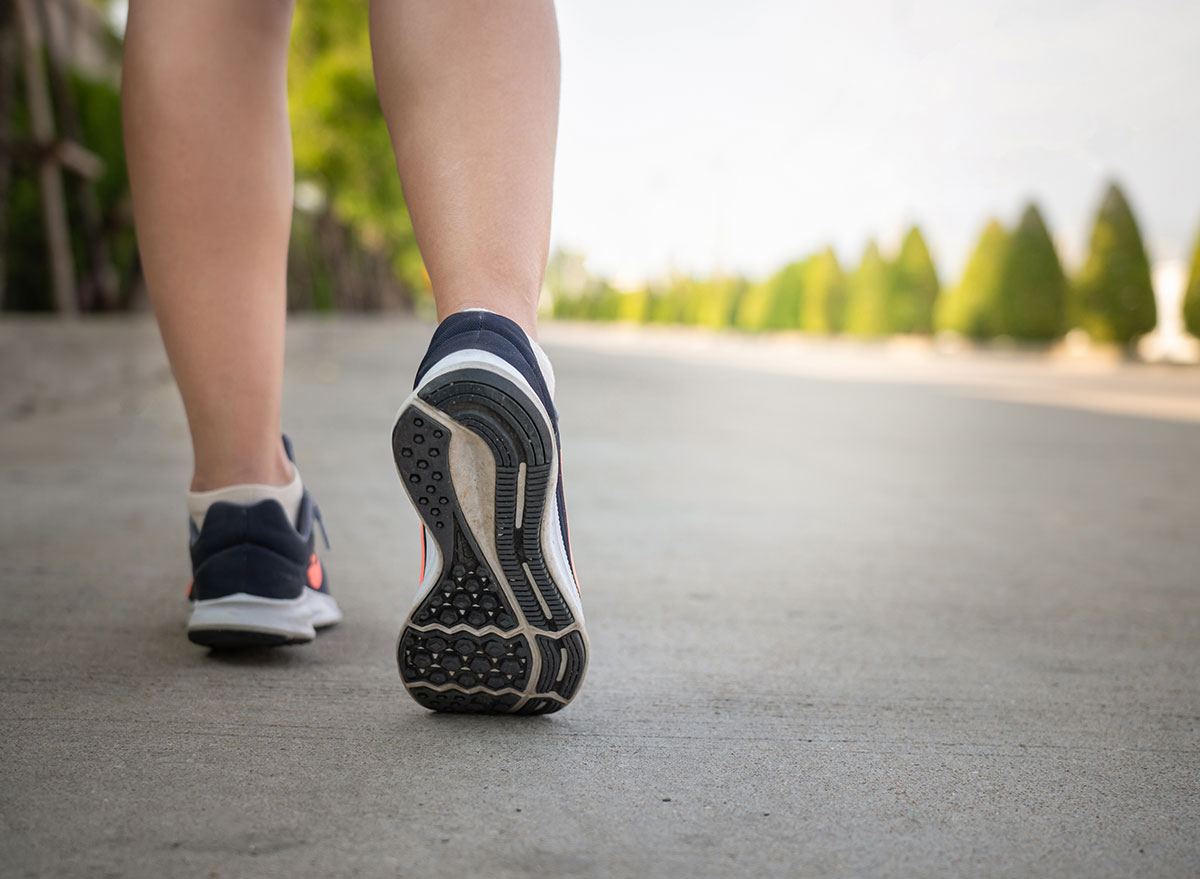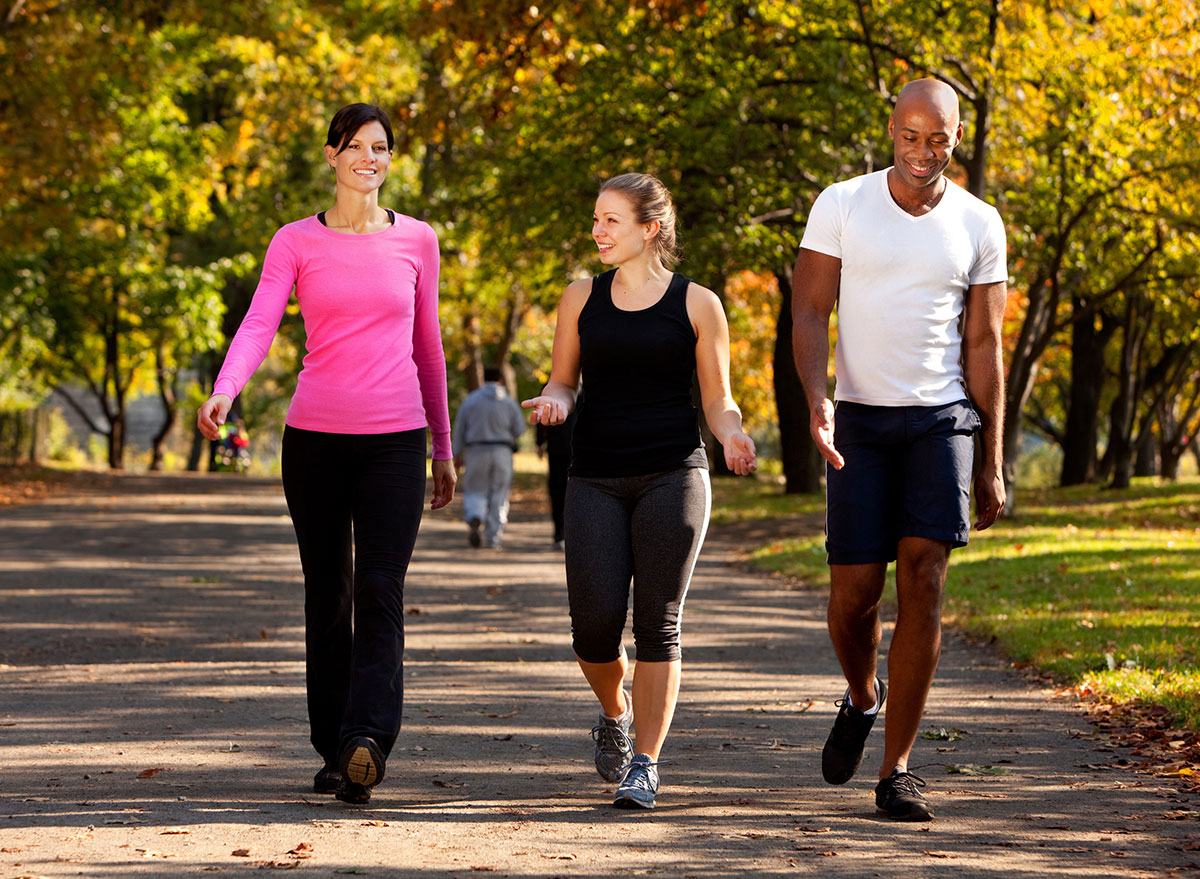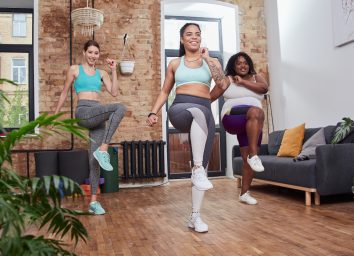Avoid These Foods if You Walk for Exercise, Says Doctor

According to the Centers for Disease Control and Prevention (CDC), more than 145 million American adults prefer to walk "as part of a physically active lifestyle," whether it's setting out on for a daily constitutional, performing a walking workout, or simply engaging in activities such as walking the dog. This is a good thing, of course. As the CDC notes, walking can help lower your risk of heart disease, stroke, depression, and even some cancers. As we've reported, walking for just 20 minutes per day can, among other positive benefits, burn upwards of 110 calories and reduce your risk of early death by 30%.
However, if you want to maximize the benefits of your walks, it's important that you fill your belly with the right foods before and after you hit the pavement—and there are some foods that you'd be wise to avoid. According to Tanuja Sharma, M.D., a family practice physician at Tampa General Hospital in Florida—who recently spoke to the local ABC News affiliate on the subject of walking for exercise and better health—you should be focusing your dietary in-take on vegetables and making sure that you're "buying different colors."
She also advises some foods to avoid: Anything dairy. You should cut down on your meat consumption, as well. "The reason why is because meat and dairy are highly processed in the way that it is made," she explained. "There's hormones, preservatives, and pesticides. A lot of that can basically affect our immunity and cause a lot of havoc on our health."
If you're heading out on a rigorous walk, she recommends that you eat "30 to 90 minutes" before going. Great food options include oatmeal, smoothies, nuts, bananas, and granola bars.
Otherwise, according to Sharma, the perfect meal includes a plate that is 50% vegetables in a variety of colors, 25% fish or "lean meat," and the final 25% should be a whole grain. You should also hydrate properly. She offers this one trick for ensuring you're getting enough water: Take your weight and divide in half and then apply ounces to that number. In other words, if you weight 130 pounds, you should consumed 65 ounces of water every day.
"A general rule of thumb is that you should try to hydrate enough until your urine is really light yellow or very clear, " she said. "That means that your body is hydrated and your kidneys are filtering out what it needs to."
For a few more dos and don'ts for getting the most out of your walks, read on, because we've included some great ones right here. And for more health news, make sure you know the The Personality Trait That Skyrockets Your Risk of Early Death.
Walk Fast

It's important to make your walk a brisk one—for your heart rate, your fat burn, and your lifespan. A study of cancer survivors published in the journal Cancer Epidemiology, Biomarkers & Prevention found that "those who walked at the slowest pace had more than twofold increased risk of death from any cause, compared with those reporting the fastest walking pace."
Ditch the Weights

Despite what you've heard, you shouldn't set out on foot toting hand-held weights. "[Two- to five-pound dumbbells] don't create enough resistance to develop meaningful changes in strength," Michele Olson, Ph.D., a professor of exercise science at Auburn University at Montgomery, in Alabama, once explained to Real Simple. "Yet they're heavy enough to increase the risk of shoulder injury." For some great workout inspiration, see why This Simple Walking Workout Is an Amazing Fat Burner, Says Top Trainer.
Don't Take Overly Long Strides

If you're walking for exercise, don't fall into the practice of taking extra-long steps. "You may be stepping out in front a little bit, but you don't want to be overstriding and reaching really far in front of yourself," Christopher John Lundstrom, Ph.D., MEd, director of sport and exercise science at the University of Minnesota School of Kinesiology, told The Healthy. "It's less stable, you'll feel a little off-balance, and if you plant your foot way in front of you, you're basically hitting the brakes every time you land."
Walk with a Group

Several studies have shown that having a strong support group is incredibly important to achieving and maintaining weight loss success. They have also revealed that those who are part of a social support network losing more weight than their solo counterparts. For more reasons why you should walk with a group, see why This Is the Most Effective Way to Exercise, According to Psychologists.








